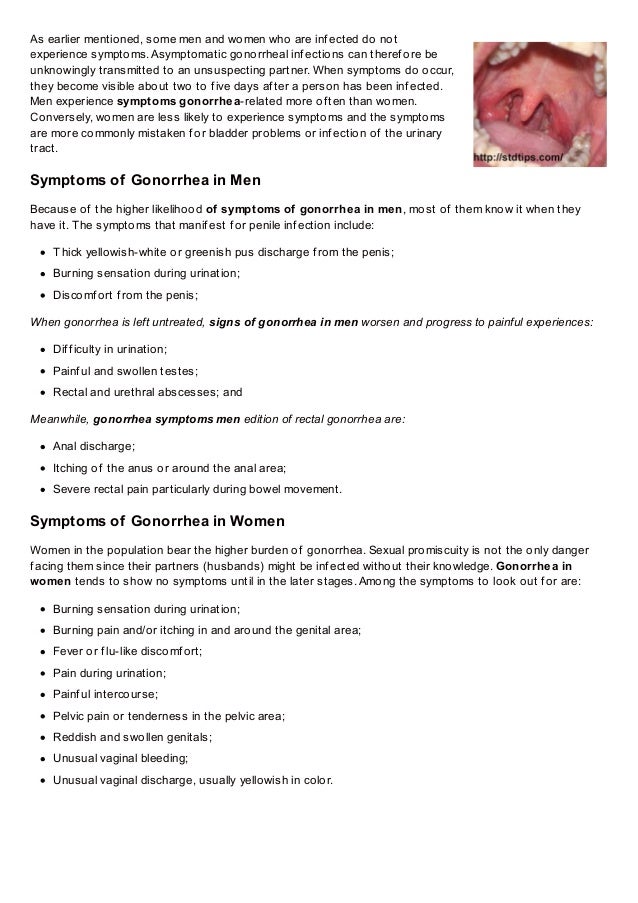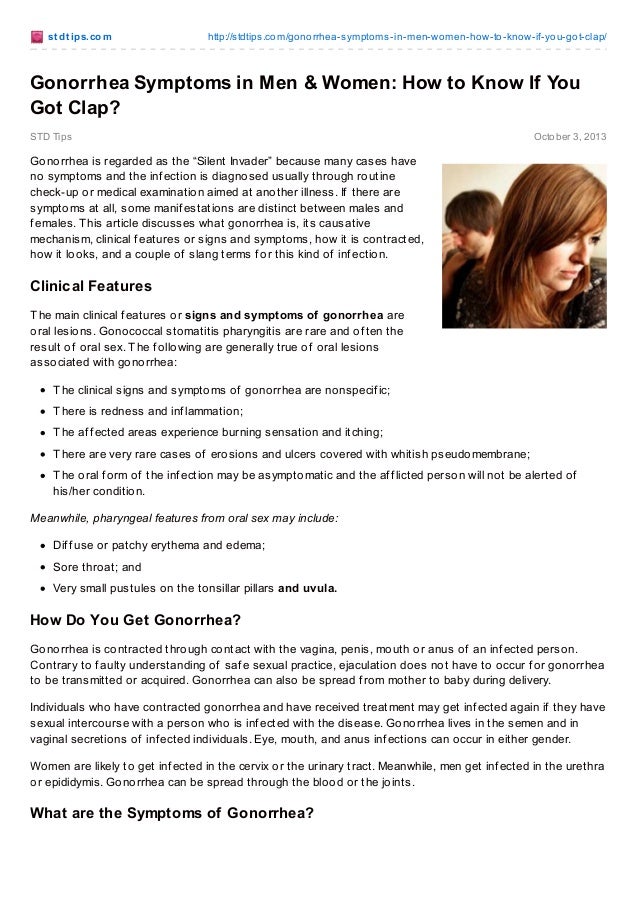

Notify your partner(s) immediately so that they can see a doctor for testing and treatment, if necessary. And, you could have passed the disease to others without knowing it. One of these people passed the disease on to you without knowing they had the disease. Since these diseases can be given to other people when you have sex with them, you should notify everyone you have had sex with during the 60 days before your symptoms appeared or you were diagnosed. That’s why notifying your sexual partners about the results of your test is important. Sometimes only one partner will have symptoms, even though both have the disease. Once you are infected, you can infect someone else.īoth gonorrhea and chlamydia often have no symptoms.

People get STDs by having sex with someone who has an STD. These are sexually transmitted diseases (STDs) that can cause permanent damage to you and your sex partners if not treated early. Your test results show you have gonorrhea or chlamydia – or both. Accessed April 14, 2020.What You and Your Partner Should Know About Gonorrhea and Chlamydia
What is viral hepatitis? Centers for Disease Control and Prevention. Sexually transmitted infections (STIs). In: Tintinalli's Emergency Medicine: A Comprehensive Study Guide. In: Harrison's Principles of Internal Medicine. Sexually transmitted infections: Overview and clinical approach. Neurosyphilis may cause no signs or symptoms, or it can cause: NeurosyphilisĪt any stage, syphilis can affect the nervous system. Congenital syphilis can be disabling, even life-threatening, so it's important for pregnant women with syphilis to be treated. There's also a condition known as congenital syphilis, which occurs when a pregnant woman with syphilis passes the disease to her unborn infant. Some of the signs and symptoms of late-stage syphilis include: Without treatment, syphilis bacteria may spread, leading to serious internal organ damage and death years after the original infection. Fatigue and a vague feeling of discomfort. Rash marked by red or reddish-brown, penny-sized sores over any area of your body, including your palms and soles. As the disease worsens, symptoms may include: Swelling of lymph nodes for more than three monthsĪt first, only a small, painless sore (chancre) may be present at the site of infection, usually the genitals, rectum, tongue or lips. Shaking chills or fever higher than 100.4 F (38 C) for several weeks. Signs and symptoms of late-stage HIV infection include: Swollen lymph nodes - often one of the first signs of HIV infection. Early-stage HIV symptoms may include:Īs the virus continues to multiply and destroy immune cells, you may develop mild infections or chronic signs and symptoms such as: Infection may not appear for 10 years or more after the initial infection. More-persistent or -severe symptoms of HIV During this period, you're highly infectious. 
Early signs and symptomsĮarly HIV signs and symptoms usually disappear within a week to a month and are often mistaken for those of another viral infection. Still, the only way you know if you have HIV is to be tested. Some people develop a flu-like illness, usually two to six weeks after being infected. When first infected with HIV, you may have no symptoms.







 0 kommentar(er)
0 kommentar(er)
